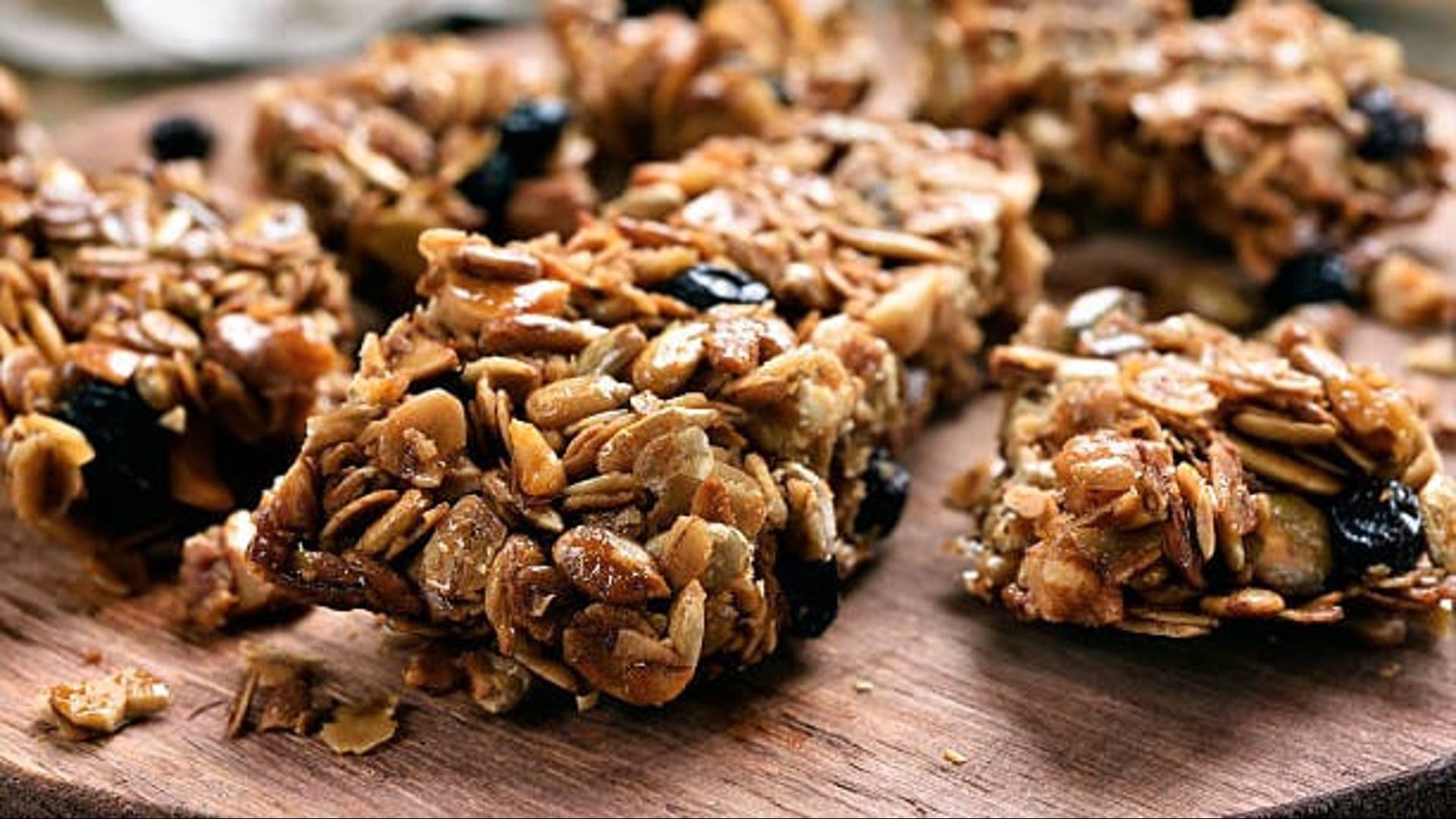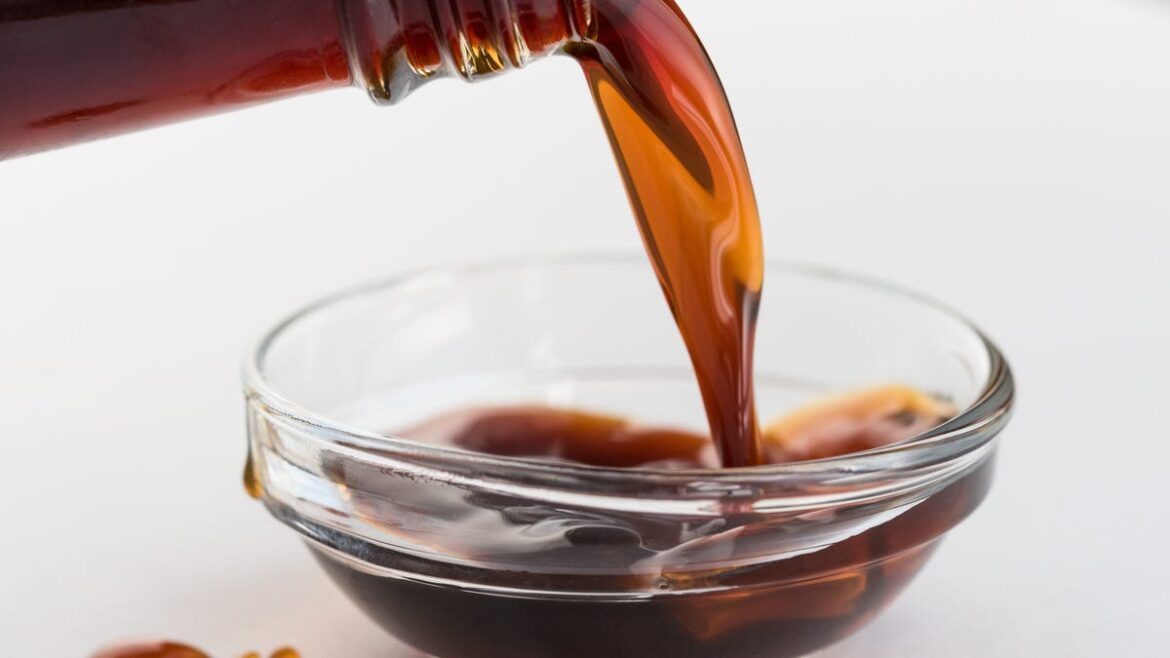
8 foods that seem healthy, but aren’t
Products that promise to be “healthy” can actually be high in sugar, sodium, fat and preservatives.
unbranded – Lifestyle
It’s hard to imagine many kitchens without soy sauce. Thanks to its deep umami flavor, easy accessibility and salty kick, we splash it on stir-fries, marinate meats with it, drizzle it over rice and noodles and dip our sushi into it.
Despite such popularity, its high sodium levels, gluten content and the fact that both soy and wheat are common allergens make soy sauce problematic for some people.
To avoid these concerns, more consumers are turning to a newer alternative condiment: coconut aminos. Here’s what this product is, how it’s made and whether coconut aminos delivers any real health benefits.
What are coconut aminos?
Coconut aminos is a “soy-, wheat-, and gluten-free umami-flavored seasoning liquid,” explains Jen Messer, a registered dietitian and president of the New Hampshire Academy of Nutrition and Dietetics.
It’s made from the sap of the coconut palm, which is harvested, sometimes lightly fermented and blended with sea salt and occasionally with vinegar or water. Some manufacturers also add natural flavor enhancers or acidifiers. The result is a sauce “that you are able to find in most larger grocery stores as well as natural food grocers, specialty markets and online,” says Messer.
“Despite the name, it doesn’t taste like coconut,” says Amy Goodson, a Texas-based nutritionist and registered dietitian at The Sports Nutrition Playbook. Instead, “it has a slightly sweeter, less salty flavor compared to traditional soy sauce.” Because of this, she notes, coconut aminos is a frequent substitute for soy sauce, tamari or other savory condiments used in stir-fries, marinades, salad dressings and dipping sauces.
One drawback to making this substitution is price. “Coconut aminos cost more per fluid ounce than conventional soy sauce,” Goodson says. “But some people find the extra expense worthwhile.”
Is coconut aminos actually good for you?
After all, coconut aminos does offer some advantages over soy sauce, particularly for people with dietary restrictions or those watching their sodium intake. “It typically contains 70% to 75% less sodium than traditional soy sauce,” says Goodson. “This can help people manage blood pressure and reduce cardiovascular or kidney stress.”
Because the sauce is also made without soy, wheat or gluten, coconut aminos is naturally suitable for those with allergies, gluten sensitivity, celiac disease or who follow paleo diets.
Despite such benefits, coconut aminos should not be considered a “superfood.” The sap does contain small amounts of amino acids, peptides, minerals (like potassium, magnesium and zinc) and trace antioxidants, notes Messer. But by the time the sap is processed into sauce, these nutrients appear only in modest amounts.
Many of the antioxidant or anti-inflammatory claims tied to coconut aminos actually come from research on coconut sap, coconut oil or coconut palms – not the finished condiment. “There is no research supporting the micronutrient or bioactive compounds specifically in coconut aminos,” Messer cautions.
So coconut aminos is healthier than soy sauce in relative terms, but the substitute falls short of being the nutritional powerhouse it’s sometimes purported to be. “Any health claims made need to be taken with a grain of salt,” says Messer. (So to speak.)
Can you eat too much coconut aminos?
For most people, coconut aminos is safe in typical condiment amounts. But “lower” sodium does not mean “low” sodium. “This is not a low-sodium condiment, so anyone who needs to reduce sodium in their diet should read labels carefully,” advises Messer. For those with hypertension, kidney disease or salt sensitivity, even moderate use can add up, especially when combined with other salty foods.
There’s also the matter of allergies. While coconut aminos helps those needing to avoid soy, wheat or gluten, the product isn’t safe for everyone. This is because coconut is classified as a tree nut in some U.S. labeling contexts, meaning people with coconut allergies usually need to avoid coconut aminos.
So long as such considerations are kept in mind, “coconut aminos can be a flavorful, lower-sodium, soy-free alternative to soy sauce that fits well into many diets and eating styles,” says Goodson. “But it’s still best enjoyed in moderation.”


Dining and Cooking